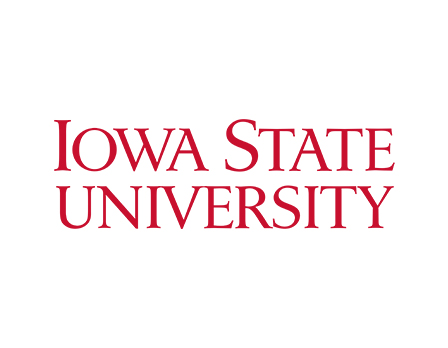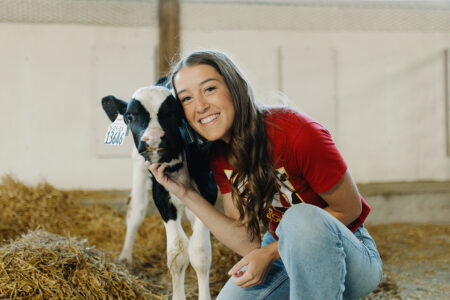Toward the end of Zhiling Gu’s master’s programme that intersected mathematics, statistics, and finance, she became fascinated with how statistics can contribute to scientific discovery. Driven by this new passion, the student from the southeastern coast of China signed up for a PhD in Statistics at Iowa State University. The programme was known as one of the best in the US with a large group of outstanding faculty members specialising in various fields of statistics. To Gu, it was just what she needed to develop theoretical frameworks to address various statistical problems arising from different scientific communities.
“In general, PhD in Statistics enables you to have the luxury of time, space, and most importantly mentors and teachers, to learn the foundation and specific techniques for different types of data and scientific problems,” she says. “To me, PhD in Statistics at Iowa State University is special because of its rigorous training as well as rich opportunities of research assistantship, consulting services, and collaboration with other departments across the campus.”

The graduate programmes here are ranked among the nation’s top 20. Source: Iowa State University
Top-ranked graduate programmes
The PhD and MS programmes in Statistics here stand out for their research opportunities, curriculum development, alumni network, and many social and community-building events. Research expands to other disciplines, giving you the chance to work with different faculty and graduate students beyond the Department of Statistics who provide the data and motivation to build your unique take on statistical methodologies.
It’s an education like no other, built on the decades of experience since the establishment of the Statistical Laboratory in 1933 – the nation’s first – and the department’s founding in 1947. Since then, the department has been committed to the advancement of statistical knowledge, awarding more statistics PhD degrees than nearly any other programme in the US, according to data from the American Statistical Association. Today, its graduate programmes rank in the top 20 and its faculty and graduate students win numerous awards.
It’s a fitting outcome for PhD and MS programmes in Statistics that set students on a journey of discovery and mastery. In her second year, Gu joined a task force focused on modelling the spread of COVID-19 using publicly available clinical and demographic data. In another collaboration with the Nanovaccine Institute at Iowa State University, Gu was a research assistant in a team tasked to identify the best vaccine formulation for aged subjects.
“Throughout various stages of experimentation and data analysis, I learned a great deal from my collaborators about experimental design and how to incorporate these designs into statistical analyses,’ she says. “It was an invaluable experience to work directly with data collectors who possess domain knowledge that I had not been trained in.”
Another PhD student Spencer Wadsworth focused his research on disease outbreak forecasting. This includes modelling the US flu outbreak and coming up with methodologies for combining many independent forecasts into a single more reliable forecast. “It’s been very rewarding to see the methodology I developed provide improved forecasts and allow for better planning,” says Wadsworth, who also interned at Boeing and analytics company After Inc.
These experiences, paired with the theoretical foundations and programming skills gained during the programme, have empowered students like Gu and Wadsworth to contribute to their own fields, as well as emerging areas, “My communication skills have improved tremendously and benefited me daily as I interact professionally with my coworkers,” she says. “The writing skills I acquired not only help me communicate my points clearly to readers of my academic manuscripts but also benefit me in documenting, organising, and elaborating my ideas and thoughts.”
Though Wadsworth is uncertain of his professional path post-PhD, he feels capable of forging a career in academia within the next few years. “I hope to land a job as a tenure-track professor in a statistics department,” he says. “When I began the programme, I didn’t have to be a professor as a goal simply because I didn’t think I would be competitive enough for it. The training I’ve had here has changed my mind.”

When graduate students aren’t making the most of the Department of Statistics’s vast research opportunities, they’re making memories in its many social events. Recently, the department hosted a 2024 Welcome Back Fall Picnic to kick off the new academic year. Source: Iowa State University
New Online Master of Applied Statistics
From Fall 2025, the department will offer a Master of Applied Statistics (MAS) that is fully online. It’s designed to fit the schedules of working professionals who wish to continue working and see to their commitments while advancing their knowledge and skills. If you want to speed through the MAS, there is a full-time option that can be completed in just 15 months.
What sets the MAS apart is its statistical consulting coursework and credit for work experience gained through internships or current employment. With increasing demand for skilled statisticians and data scientists who can make a positive impact across a wide range of industries, the MAS’s experiential approach will give many students a headstart in joining the industry.
“This new initiative is designed to build on our department’s tradition of excellence and innovation in statistical education and research,” says Jarad Niemi, Director of Graduate Recruiting and Admissions. “It aims to equip students with essential skills to address complex world problems, fostering a collaborative environment that facilitates personal growth and integrates real-life motivation, mathematical foundations, computational skills, and effective communication.”
Follow the Department of Statistics at the Iowa State University on Facebook, Instagram, LinkedIn, and X.













